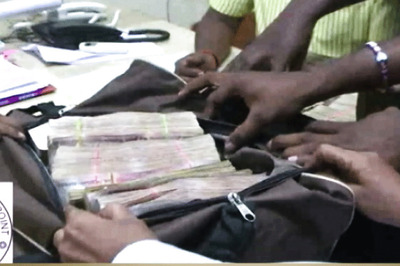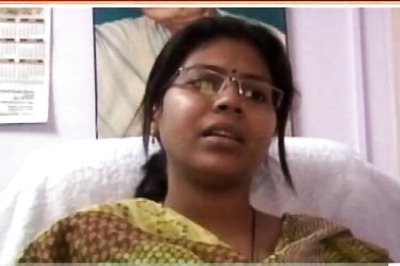
views
THIRVANANTHAPURAM: The aggressive revision of interest rates by Reserve Bank of India, its eleventh upward hike since March 2010, could give an unintended boost to a fledgling business the central bank has never been enthusiastic about; Islamic banking. With interest rates threatening to go beyond the reach of the common man, the interest-free Islamic banks in the state are attempting to position themselves as an alternative source of finance.“Under the existing system, a customer is forced to bear a cost for which he is not responsible,’’ says Tanvir Mohidheen, the Chief Operating Officer of Alternative Investments and Credit Limited (AICL), a Shariat-compliant entity. Islamic banks, according to Tanvir, insulates the consumer from the frequent shocks administered by the RBI.Islamic banks primarily have two ways of providing home and auto loans. One is the ‘cost + margin model’, ‘murahaba’ in Shariat parlance. Here, the Islamic bank purchases the house or car for a costand then fixes a ‘negotiated’ margin. The customer will then have to pay the cost and the margin as monthly instalments. The margin never changes unlike in the case of the mainstream banking system where there are floating or market-sensitive interest rates.The second is the ‘musharaka’ model. The bank will provide 70 per cent of the finance to purchase a car or a home. This means, to purchase a car worth `6 lakh, the bank will provide `4.2 lakh.So, for a repayment period of five years, the consumer will have to pay a monthly instalment of `7,000. This is not all. The bank will fix a monthly rent, which will be half the existing market rent. “The best part of this model is that the liability comes down with every monthly payment,’’ Tanvir said. In contrast, for car loans in the mainstream banking sector the current interest rates hover between 12 and 13 per cent. So, for a `6-lakh loan for five years, the customer has to pay an EMI of over Rs 13,000 a month at 12 per cent. And now this is all set to shoot up with banks forced to revise their prime lending rate following the RBI’s higher-than-expected hike in repo rates. Economic experts predict a 16-18 per cent rise in interest rates.Former Finance Minister and economist T M Thomas Isaac, who was instrumental in starting the debate about Islamic banks in the state, says that in periods of rising interest rates, Islamic banks emerge as a cheaper alternative.“The finance is not market-driven and the repayment is fixed in moral terms,”Isaac said. However, economists such as Pulapre Balakrishnan and D Narayana are highly skeptical. Narayana says Islamic banking is just a drop in the ocean. “It cannot be of any purpose as long as it is just a miniscule part of our financial system,’’ he says.CDS director Pulapre Balakrishnan is even dismissive. ‘’Interest-free banking offers no solution whatsoever. It is simply not acceptable that certain banks, just because they don’t charge interest rates, are not amenable to RBI’s monetary actions which are generally carried out for public good,’’ Balakrishnan said.


















Comments
0 comment